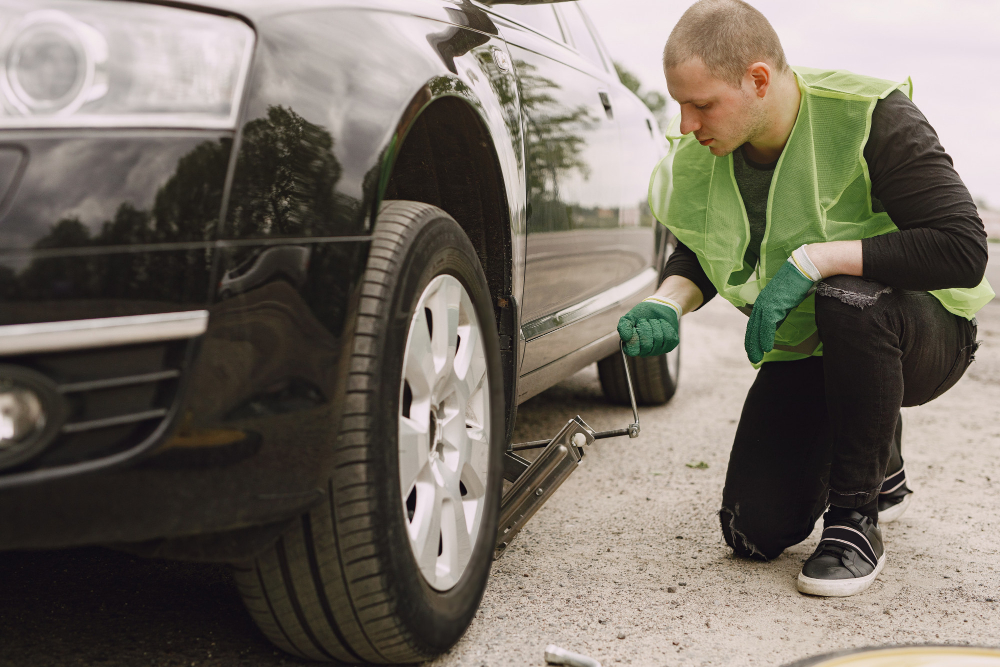When summer arrives, people often get thrilled because summer is a great time to do outdoor activities with family and friends. However, summertime is also when the weather’s temperature is at its peak. Hence, heat-related illnesses and accidents commonly occur.
In this blog, we will help you prepare for your health and safety during hot weather, so you ready for both summer fun and risks.
HEALTH

Photo by Freepik
During hot weather, a lot of factors can reduce the body’s time and ability to cool off. When this happens, heat-related illnesses may occur and even death if not treated immediately. So, always act promptly because prevention is always better than cure.
Heat-Related Illness:
1. Heat Stroke is severe and deadly. It occurs when the central nervous system develops complications due to overheating of the body which takes place at a body temperature greater than 104 degrees Fahrenheit. If a person is suspected to be experiencing heat stroke, call emergency medical help immediately.
SYMPTOMS
- Fainting or loss of consciousness
- Confusion or disorientation
- Nausea or throbbing headache
- Lack of sweat
- Red and hot skin
- Seizures
- Fast breathing
- Sudden jerk of muscles
2. Heat Exhaustion is when the body overheats which when left untreated will cause heat stroke. Symptoms of heat exhaustion are quite similar but are lighter than heat stroke’s.
SYMPTOMS
- Fatigue
- Rapid pulse
- Dizziness or headache
- Low blood pressure upon standing
- Moist skin with goosebumps when in heat
- Heavy sweating
3. Heat Cramps is muscle pain or spasm in the leg, arms, or abdomen that happens before your body suffers from heat exhaustion.
4. Heat Rash is a mild skin irritation that usually appears in the neck, upper chest, or inside of the elbow that is caused by heavy sweating.
The two main factors that may put you at risk of heat illness:
Humidity
It is harder for the human body to cool off when the weather is humid because is more difficult to evaporate the body’s sweat during this time.
PREVENTION
- Always stay in an air-conditioned shelter or vehicle.
- Try not to stay in the kitchen for long hours or use the oven too often to reduce the heat in your household.
- Avoid going out in the middle of the day (11 AM-3 PM) when the sun is at its strongest.
- Do physical activities in a short period. If you cannot avoid it, you can take frequent short breaks and drink plenty of fluids to let your body cool down before continuing your task.
- Wear light-colored loose clothing and a hat
- Freeze water in a spray bottle and spritz it to your face, neck, and body to feel refreshed.
- Take a cool shower
Health Condition
Old age (65-older), obesity, dehydration, heart disease, mental illness, poor circulation, sunburn, alcohol, and medications can make it harder for the body to release heat.
PREVENTION
- Drink plenty of fluids
- Stay physically active and reduce sedentary lifestyle
- Wear sunscreen
- Do not drink alcohol and caffeine to prevent dehydration
- Eat healthily
- Always talk to your doctor regarding your medication
- Avoid a humid environment and hot temperature
5. Eye Injury or sunburned eye are more likely to occur during summer. This condition is called photokeratitis which is caused by too much exposure of the eyes to ultraviolet rays. The more exposure your eyes get the more intense your symptoms can be. Moreover, a prolonged overexposure of the eyes to UV can cause serious conditions such as cataracts and eyelid cancer.
SYMPTOMS
- Redness and/or swelling
- Feeling like there’s sand in our eye
- Headache
- Blurry vision
- Tearing
- Sensitivity to bright light
- Seeing halos
- Miosis
- Twitching sensation in the eyelid
PREVENTION
- Wear eyeglasses most especially in places with high UV exposure such as the beach
- Wear protective gear when you are working as a welder since welding machines are a source of artificial UV light
ENVIRONMENTAL HAZARD

Photo by Freepik
During the hot weather, some safety hazards are more likely to occur.
1. Exploding Tires
Hot weather can cause concrete or roads to heat up too much causing tires to overheat as well. Too much heating of tires increases the air pressure inside the tires that can make them explode. A tire blowout can cause a serious road accident.
PREVENTION
- Always touch your tires and see if they are too hot. Wait until the tires cool off before continuing your trip
- Replace your worn tires with a tire that can endure higher temperature
- Wax your tires frequently to keep them moist to prevent excessive drying that increases the probability of a blowout
- Follow the road speed limits because the faster you drive, the higher friction your tires develop hence, more heat to your tires.
- Do not overload your vehicle as it may cause your tires to pop easier
- Always keep your tires on your car’s recommended amount of air pressure
- Keep your vehicle equipped with a spare tire, tools, and vehicle first aid kits in case of emergency
2. Fire
The heat caused by sunlight may cause a combustible object to overheat and ignite a fire. Other cases were also caused by sunlight which traveled from a reflection coming from mirrors and glass wares (e.g. glass jars left near the window).
PREVENTION
- Pull down blinds and window curtains when possible
- Use ceramics for plant vases left near the windows
- If possible, do not place glass jars or other reflective materials under the direct heat of the sun
- Always keep fire extinguishers, fire blankets, and other fire safety equipment in your home
Know more about the most common and uncommon causes of house fires.
Source:
https://www.redcross.ca/blog/2019/7/tips-to-help-you-stay-safe-during-hot-weather
https://www.cdc.gov/nceh/features/extremeheat/index.html
https://www.webmd.com/a-to-z-guides/heat-stroke-symptoms-and-treatment
https://my.clevelandclinic.org/health/diseases/16425-heat-illness#:~:text=What%20is%20heat%20illness%3F,temperatures%20and%20humidity%20are%20high.
https://www.healthline.com/health/eye-health/sunburned-eyes
https://www.aceable.com/blog/this-is-what-happens-when-tires-get-too-hot/#:~:text=Heat%20can%20have%20a%20huge,per%20square%20inch%20(PSI).&text=Such%20a%20big%20difference%20it%20can%20cause%20a%20tire%20to%20pop.
